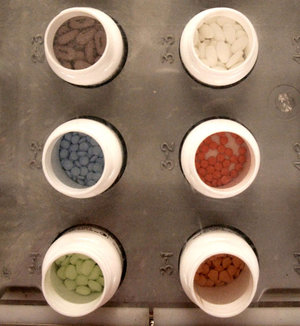The following editorial appeared in last week's Philadelphia Inquirer (www.philly.com) supporting legislation that would require medical professionals to discuss the potential addictive qualities of certain medications prior to prescribing them.
It's far more important to know what person the disease has than what disease the person has.

The Medical Society of New Jersey's objection to legislation requiring physicians to discuss the potential for prescription drug addiction with their patients is understandable in that context, but underwhelming considering the good that would result from the law.
Since October, the Assembly version of Senate Bill 2366 has been sitting in the health committee, chaired by Assemblyman Herb Conaway (D., Burlington), a family doctor who has been critical of mandates affecting doctors' interactions with patients. Conaway's office said Wednesday that he was still trying to resolve concerns about the bill.
The Medical Society also objected to companion legislation mandating doctors' participation in New Jersey's Prescription Monitoring Program, which includes a database that allows physicians to see if patients might be "doctor shopping" to obtain narcotics. The Legislature passed that bill; now Gov. Christie needs to sign it.
Pennsylvania lawmakers passed a bill last year to establish a similar database, but the state didn't provide enough money to get it running by its designated June 30 start date. Gov. Wolf has funding for the database in his proposed budget. Meanwhile, Department of Health spokeswoman Amy Worden said building the database from the ground up has been a challenge.
The expected results will be worth the effort. The Partnership for a Drug-Free New Jersey cites federal statistics showing the number of prescriptions for opiate-based painkillers in this country has tripled over the last 20 years. According to the Centers for Disease Control and Prevention, an average of 44 Americans die every day from abuse of prescription painkillers such as Vicodin and oxycodone.
Family members who find drugs in medicine cabinets are susceptible, a factor evident in studies showing one in four teens admits to having abused a prescription painkiller. Prescription drug abuse affects all demographics, and addicts often turn to cheaper street drugs like heroin when it becomes too difficult to obtain a prescription or too expensive to get one filled.
Doctors should want to discuss such realities with patients before prescribing painkillers, but too often, that conversation never occurs. It's understandable that physicians don't want to be told how to interact with patients, but the extent of painkiller addiction in this country means it can no longer be left to chance. Doctors must talk to their patients about the risks of becoming addicted to prescribed drugs.